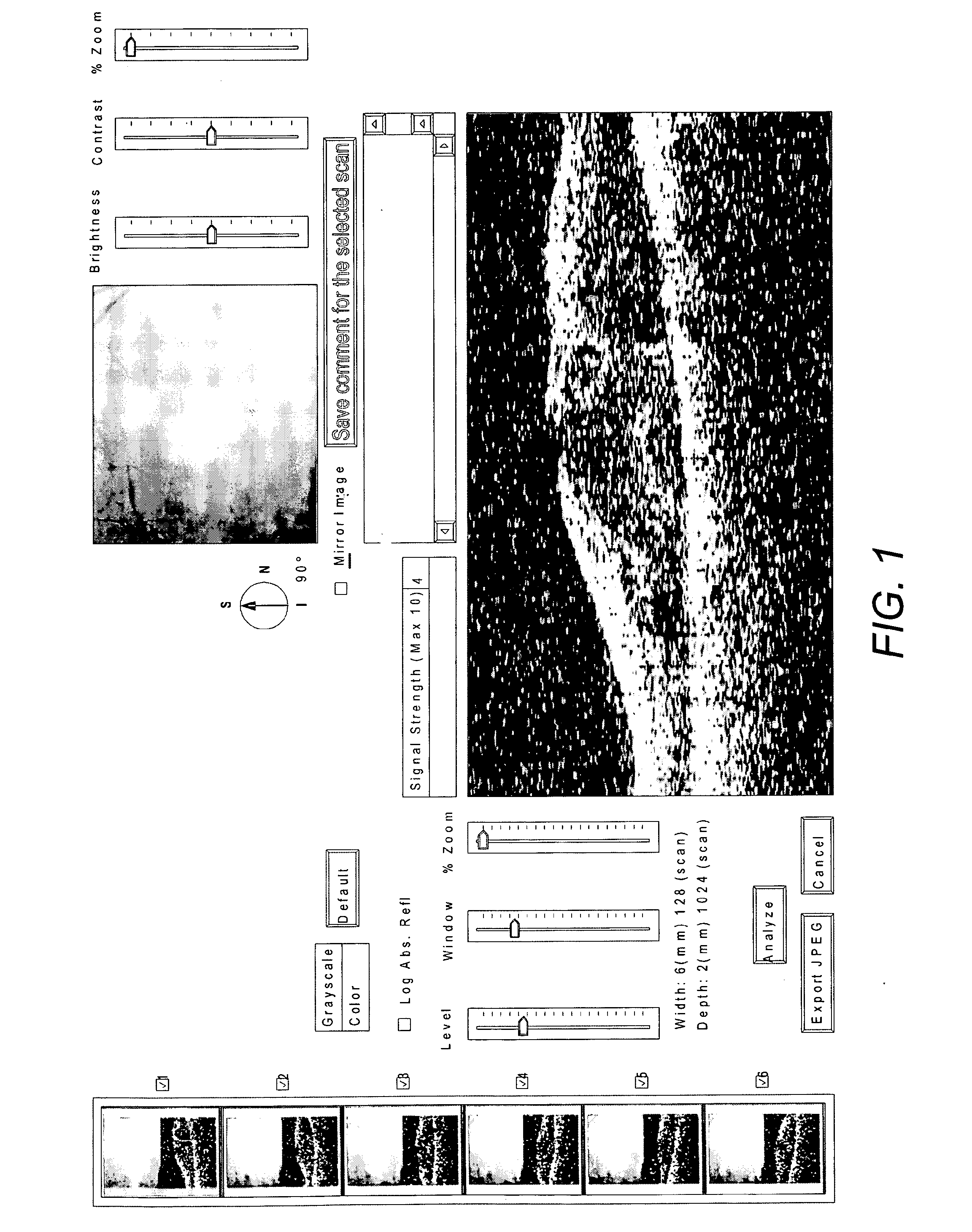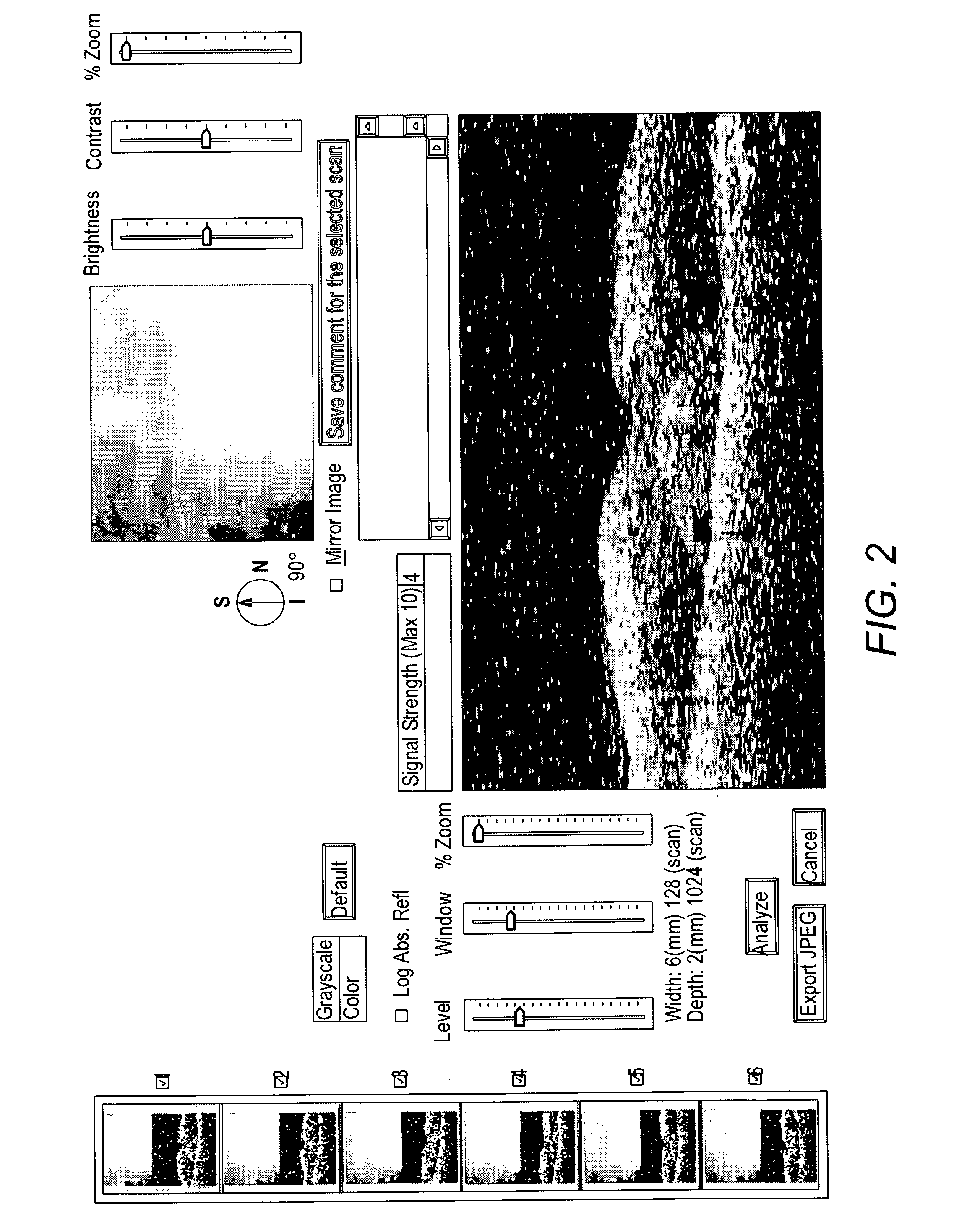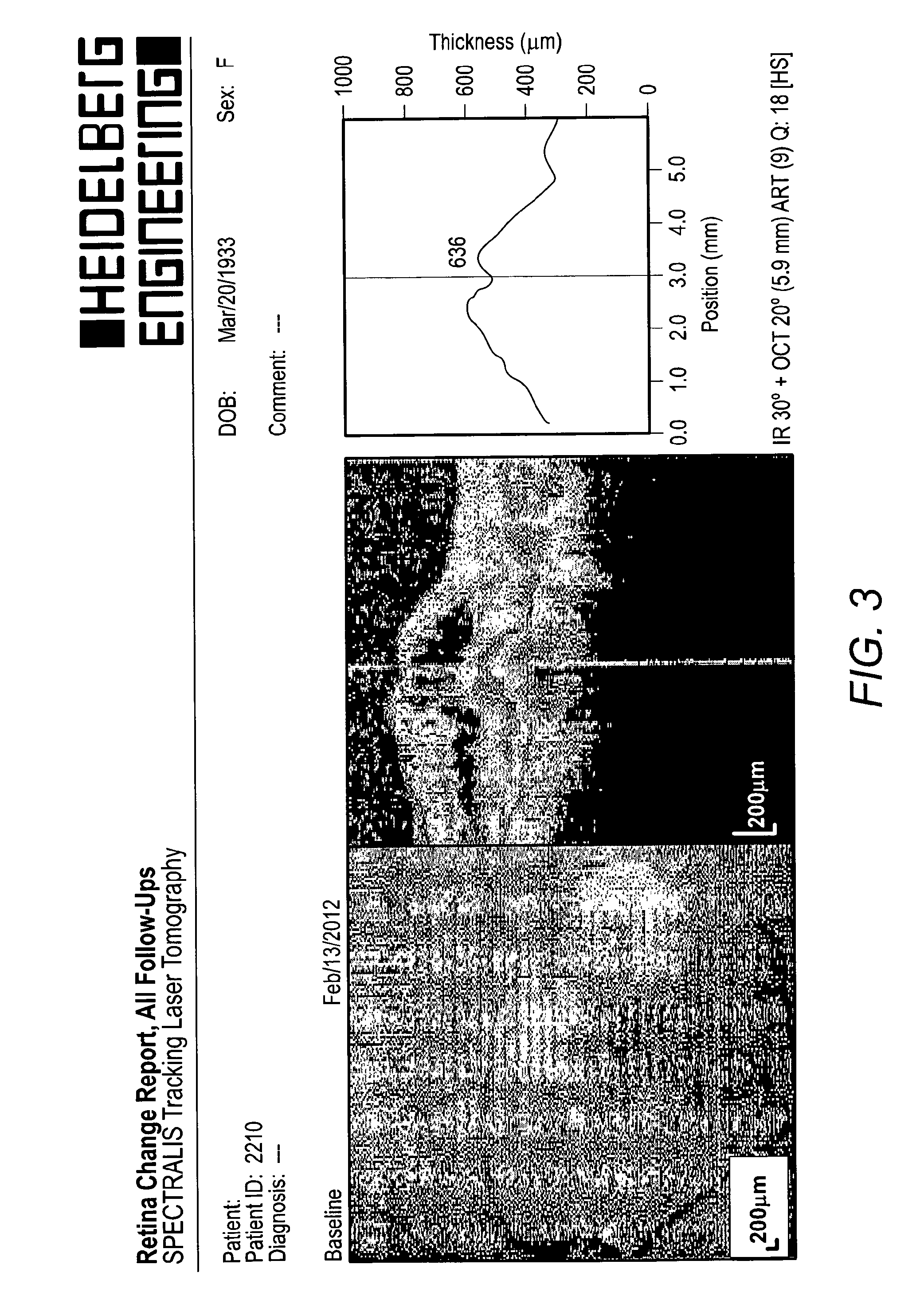Use of omega fatty acids for treating disease
a technology of omega fatty acids and disease, applied in the field of eicosapentaenoic acid, can solve the problems of loss of vision in the centre of the visual field, damage to the photoreceptor, extracellular oedema, etc., and achieve the effect of avoiding or reducing side effects experienced, improving the symptoms of those conditions, and improving the effect of symptoms
- Summary
- Abstract
- Description
- Claims
- Application Information
AI Technical Summary
Benefits of technology
Problems solved by technology
Method used
Image
Examples
example 1
Omega Fatty Acid Composition
[0086]An example omega fatty acid composition is indicated in Table 4 below and is sold under the name Omega 3RX® (Enerzona):
[0087]
TABLE 4CompositionAmount per 100 gCalories / Energy3700KJProtein0gFats100gOf which:Saturated3.1gMonounsaturated11.5gPolyunsaturated85.4gTotal omega-3 fish oil75gOf which:EPA (eicosapentaenoic acid)40gDHA (docosahexaenoic acid)20gOther omega-3 fatty acid15g
[0088]5 ml of Omega 3RX® contains 3.13 g of omega-3 fatty acids, of which 1.67 g is EPA (5.53 mmol), 0.83 g is DHA (2.53 mmol), and 0.63 g is other omega-3 fatty acids.
example 2
Case Studies Showing Treatment of Macular Oedema with Omega Fatty Acids
[0089]14 cases of macular oedema that demonstrate the efficacy of orally taken Omega 3RX® for treatment are presented.
[0090]The omega fatty acids were given orally. The form of omega fatty acid used was Omega 3RX®, in liquid form. Omega 3RX® was dosed twice per day. The daily dose of Omega 3RX® was 5-7 ml (i.e. two doses of 2.5-3.5 ml Omega 3RX® daily).
[0091]OCT (Optical Coherence Tomography) can accurately measure the oedema in the macular area and has become an invaluable tool for assessment and therapeutic decision making for patients with macular oedema. OCT scans were used to monitor patients' response to treatment.
case 1
Presentation
[0092]Patient 1 is a 61 year old gentleman with diabetes who was treated for macular oedema since Sep. 28, 2009.
Treatment
[0093]He was treated with intravitreal injections of Lucentis® and Kenalog® in Sep. 28, 2009 and May 5, 2010 in the left eye. He also had grid laser treatment on Jun. 2, 2010. On Aug. 4, 2010 he was started on Omega 3RX®.
Result
[0094]There was marked improvement in macular oedema and visual acuity in the left eye. FIG. 1 shows the macular oedema before treatment with Omega 3RX® and FIG. 2 after treatment. The vision improved from 6 / 18 to 6 / 12 in the left eye.
PUM
| Property | Measurement | Unit |
|---|---|---|
| weight % | aaaaa | aaaaa |
| time | aaaaa | aaaaa |
| time | aaaaa | aaaaa |
Abstract
Description
Claims
Application Information
 Login to View More
Login to View More - R&D
- Intellectual Property
- Life Sciences
- Materials
- Tech Scout
- Unparalleled Data Quality
- Higher Quality Content
- 60% Fewer Hallucinations
Browse by: Latest US Patents, China's latest patents, Technical Efficacy Thesaurus, Application Domain, Technology Topic, Popular Technical Reports.
© 2025 PatSnap. All rights reserved.Legal|Privacy policy|Modern Slavery Act Transparency Statement|Sitemap|About US| Contact US: help@patsnap.com



